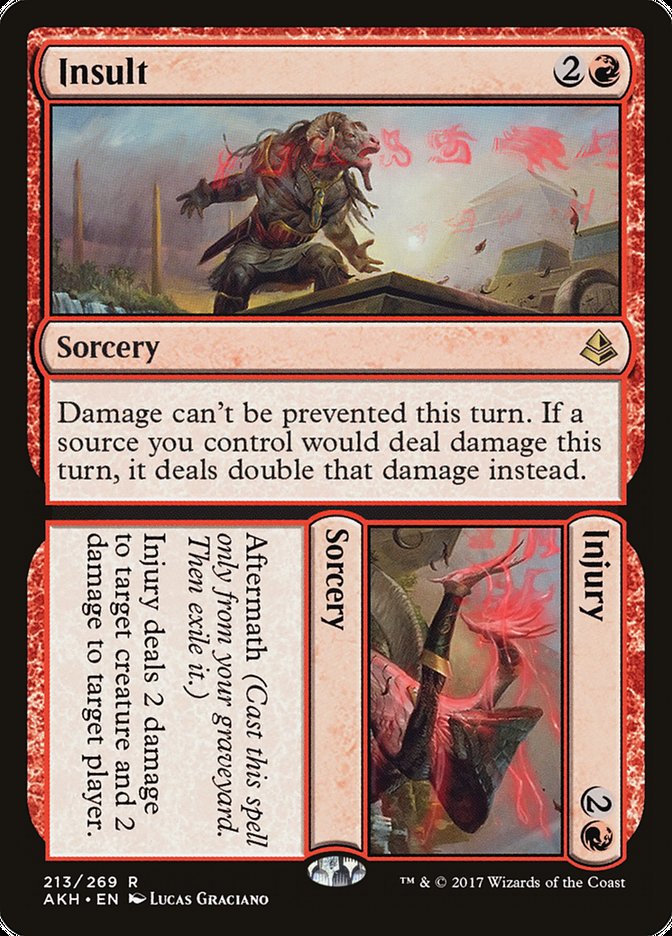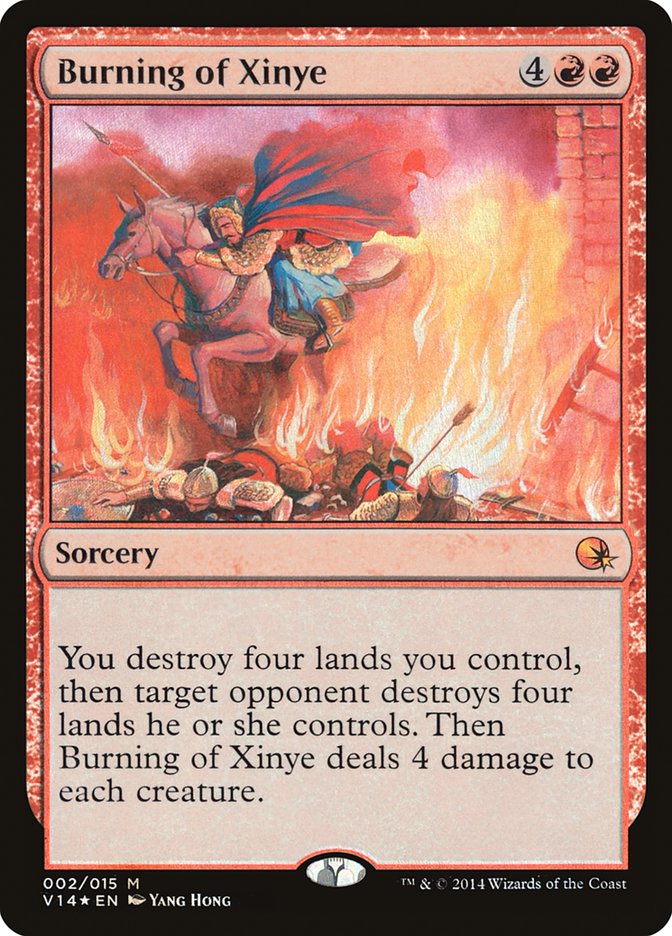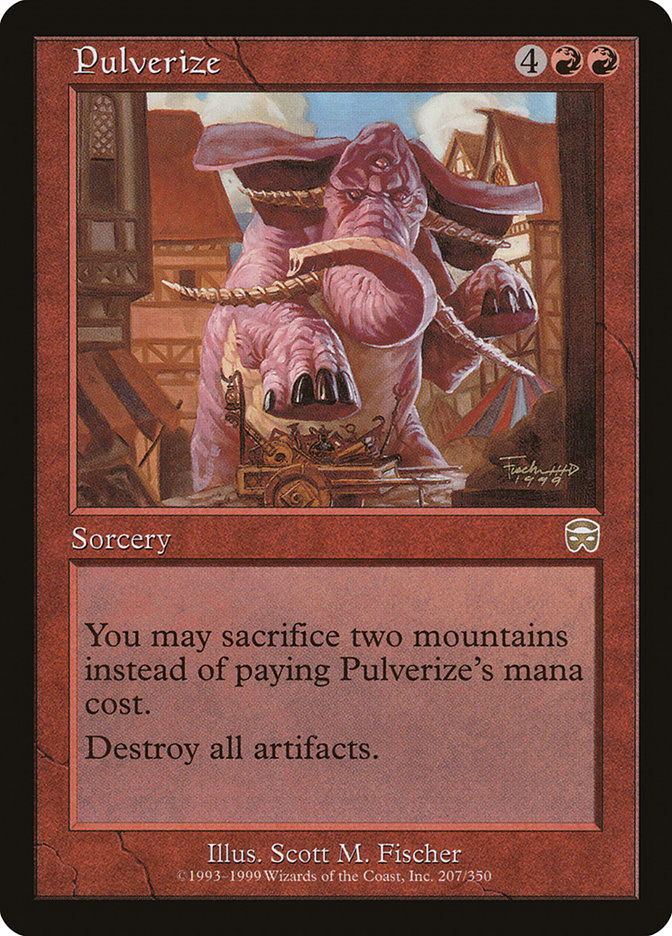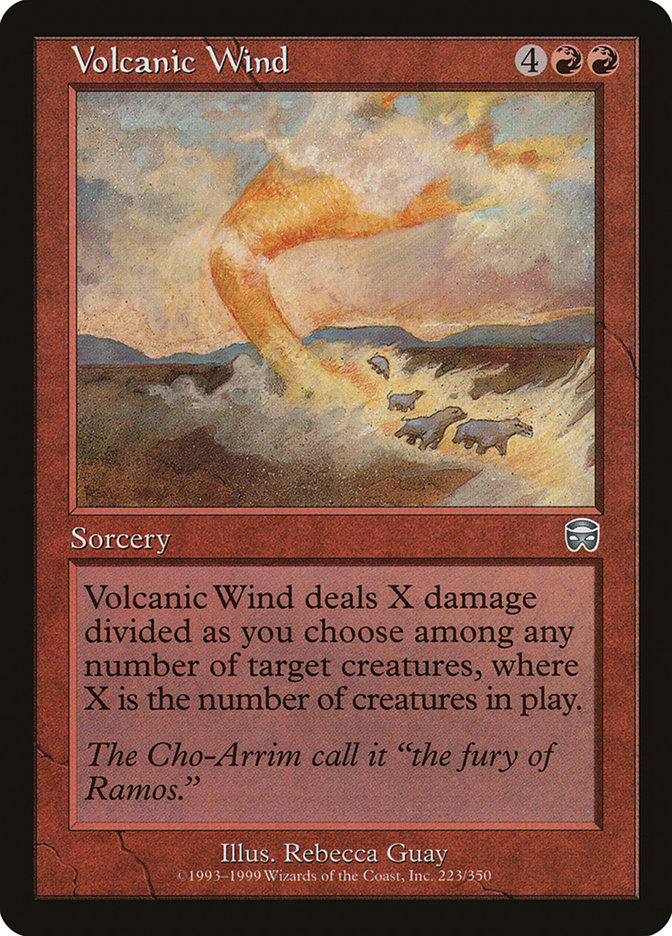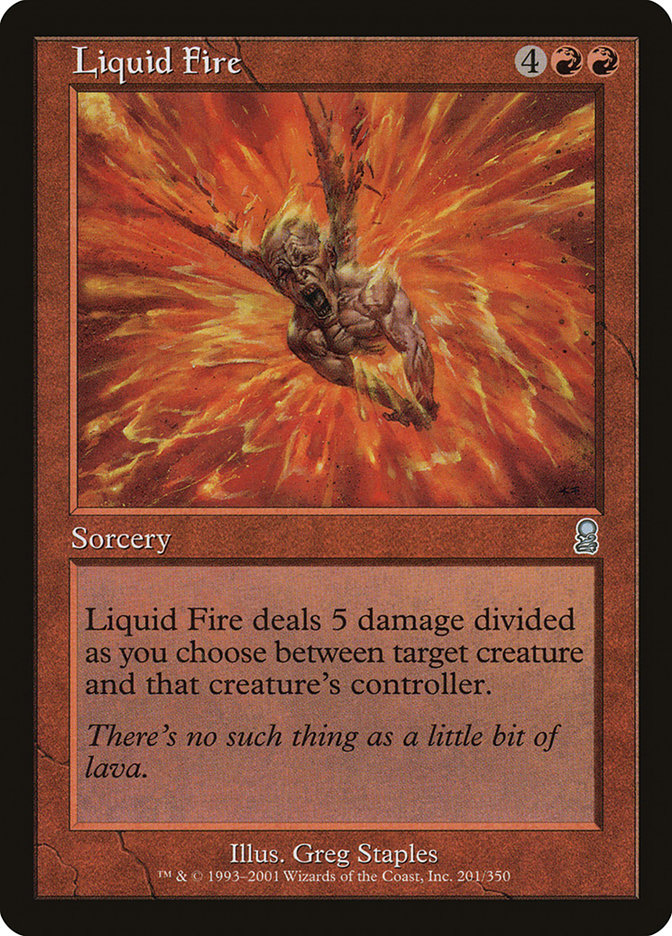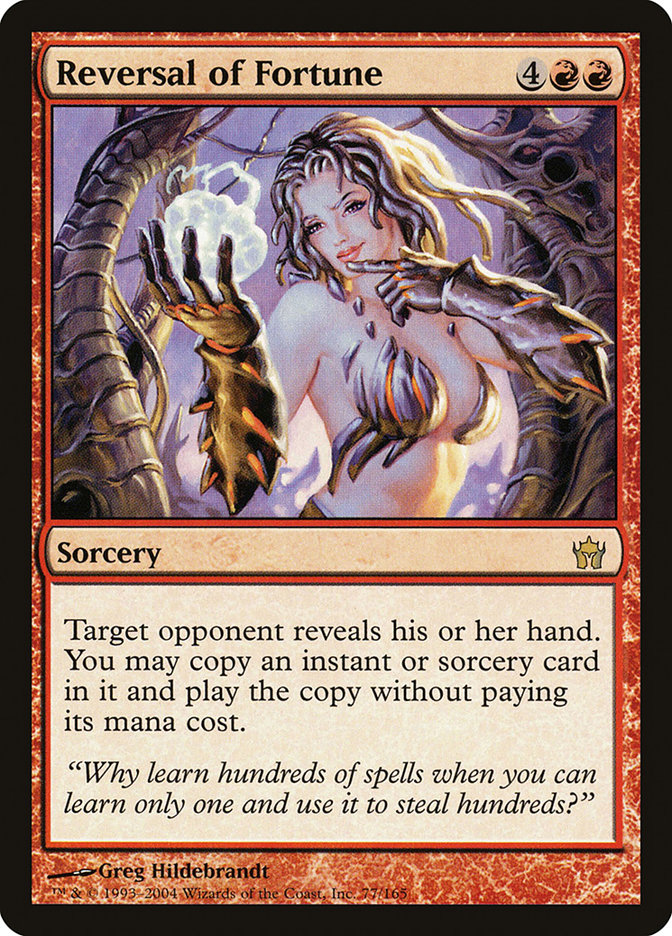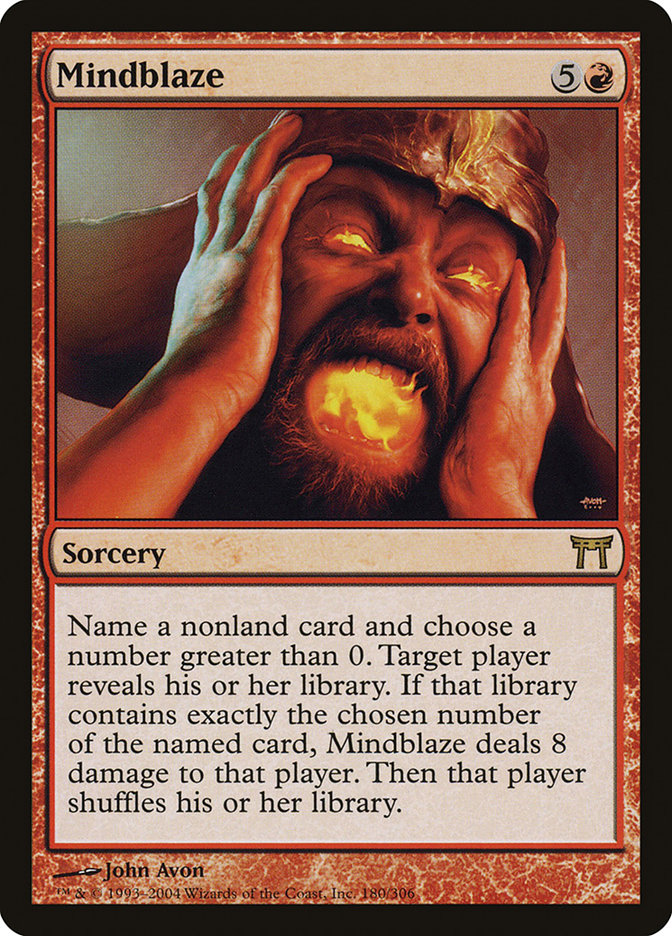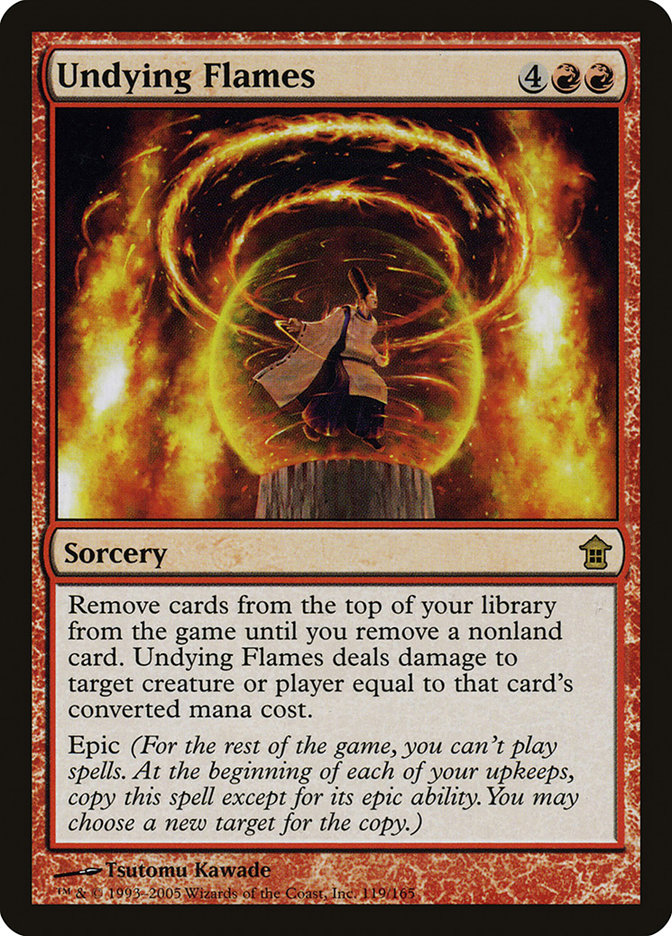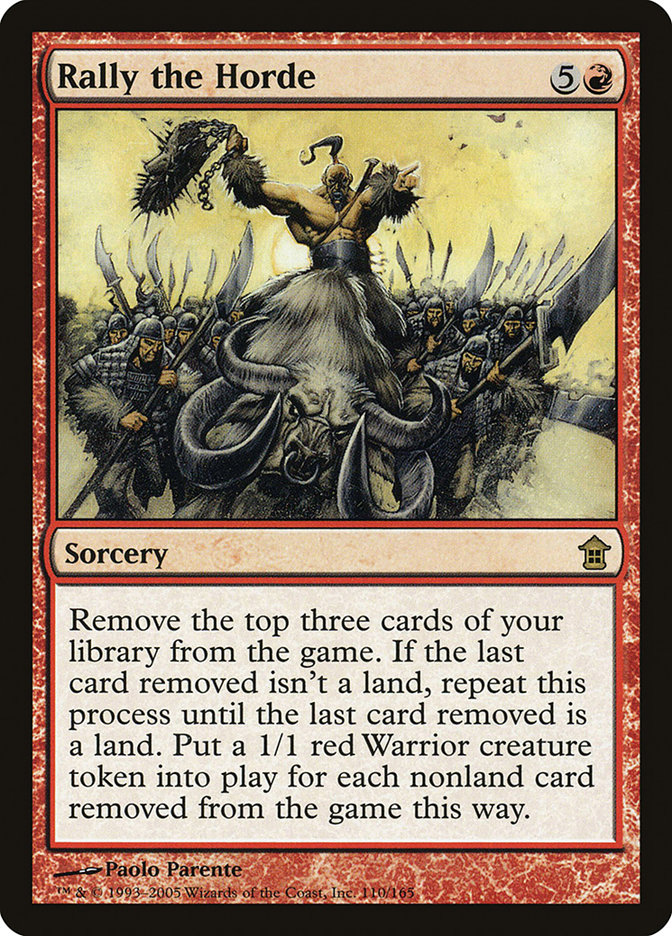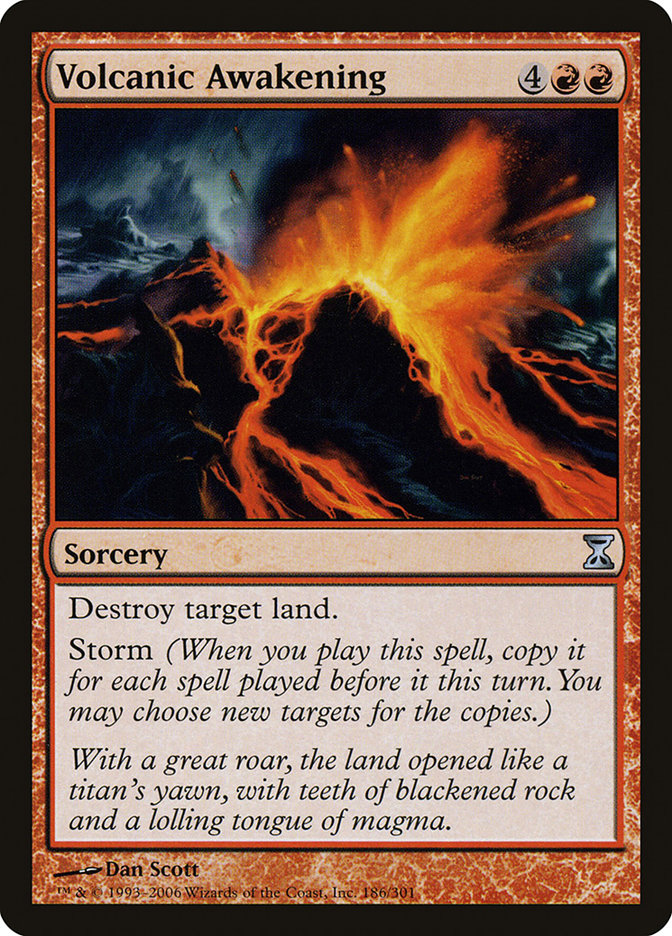Insulto // Agressão Carta MTG
| Expansões | Lançada em 3 expansõesVer todas |
| Custo de mana | |
| Custo convertido de mana | 6 |
| Raridade | Rara |
| Tipo | Feitiço |
| Habilidades | Aftermath |
Texto da carta
Consequências (Conjure esta mágica somente de seu cemitério. Depois, exile-a.) Agressão causa 2 pontos de dano à criatura alvo e 2 pontos de dano ao jogador alvo.
Cartas similares a Insulto // Agressão
Insult // Injury is an intriguing multifaceted card within Magic: The Gathering, providing a remarkable blend of damage amplification and direct damage distribution. It finds likeness with cards like Furnace of Rath, which similarly doubles damage dealt to opponents and permanents they control. However, Insult // Injury is unique in its split card design, allowing players to cast Injury to deal direct damage after doubling the damage with Insult, all within the same turn.
Looking at the second half, Injury echoes familiar notes found in cards like Arc Lightning. While both deal damage split among multiple targets, Injury has the coupled potential of the Insult effect to amplify its impact. In terms of versatility, Insult // Injury offers a significant strategic advantage by combining these effects.
Comparing these dynamics against other damage-dealing spells, Insult // Injury stands out for its dual-purpose nature and synergistic components that can swiftly turn the tide of a game. Its capacity to transform the battlefield with one swift combo makes it a powerhouse in the right deck, especially in scenarios where maximizing damage is crucial.
Cartas semelhantes a Insulto // Agressão por cor, tipo e custo de mana
Card Pros
Card Advantage: Insult // Injury gives players the potential to control the flow of the game by enabling powerful plays that can turn the game in their favor. The card’s “Injury” aspect lets you deal damage while drawing into your deck, keeping your hand filled with options.
Resource Acceleration: By inflicting damage directly to both opponent and their creature, this card synergizes well with mechanics that trigger upon dealing damage or spells that benefit from having fewer opposing creatures on the battlefield, potentially accelerating your strategy.
Instant Speed: The split card nature of Insult // Injury offers flexible play choices. Although not at instant speed itself, it pairs well with instant speed spells by setting up profitable scenarios where your instant spells can be more effective following the double damage effect from “Insult.”
Card Cons
Discard Requirement: Playing Insult // Injury comes with a prerequisite where players must throw away another card to utilize its full capabilities. This action could backfire, leaving players at a disadvantage when their hand is already running low on cards, ultimately reducing their strategic options.
Specific Mana Cost: The necessity for both red and hybrid red mana to cast Insult // Injury could be restrictive for decks that don’t run heavily on these colors. This mana requirement may impede the card’s inclusion in multi-color decks that cannot consistently produce the necessary mana.
Comparatively High Mana Cost: With Injury’s combined cost reaching up to six mana, players might find it too resource intensive for the effect it delivers. Given the diverse options available in the game, enthusiasts often look for more mana-efficient alternatives that can offer similar or better board impact without such hefty mana investments.
Reasons to Include in Your Collection
Versatility: Insult // Injury offers a unique two-part gameplay feature that allows players to adapt to different situations. The first half can double damage output, which is significant in aggressive strategies, while the second offers targeted removal, an asset in almost any game scenario.
Combo Potential: Thanks to its ability to amplify damage, Insult can be a game-changer when combined with spells or creatures that deal damage. This can lead to unexpected victories by turning a moderate amount of damage into a lethal attack.
Meta-Relevance: This card shines in a meta heavy with creature-based strategies. Insult // Injury can serve as an excellent tool to either clear blockers out of the way or finish off an opponent with escalated damage, adjusting well to the ever-changing landscape of competitive play.
How to beat
Insult // Injury is a unique split card from Amonkhet that can surprise opponents with its potential for dealing massive damage in a single turn. The Insult half makes damage unable to be prevented for a turn and doubles any damage a source you control would deal. This can set up game-ending scenarios when combined with creatures on the board or burn spells. To counter this, smart removal and timing are vital. Use instant-speed removal spells to clear the board before Insult can be cast, reducing its impact.The Injury half of the card, while not as sudden in its damage potential, still presents a challenge with its ability to target both a creature and a player. Keeping life totals high and maintaining board presence with creatures that can survive a hit from Injury – which deals 2 damage to each target – will make this less of a threat. Playing protective spells, like those that grant indestructibility or hexproof for a turn, will neutralize Injury’s effect.Handling Insult // Injury effectively requires an understanding of its mechanics and strategic preemption. If you can anticipate its arrival from an opponent and manage the board state accordingly, you’ll nullify much of its power, allowing you to maintain control and continue towards victory.
BurnMana Recommendations
The tactical depth of MTG often involves cards that can tip the balance of a game and Insult // Injury is one such catalyst. With its flexible damage potential and the ability to alter the course of a match, it’s a worthy addition to decks utilizing red mana. Whether clearing a path for a lethal attack or decimating an opponent’s creatures, the strategic use of this card is evident. We understand the importance of exploring such dynamic cards and their implications on gameplay. Curious about how Insult // Injury can ignite your deck’s capability? We warmly invite you to learn more with us and discover how to harness its power to achieve spectacular victories.
Onde comprar
Se você deseja comprar um cartão Insulto // Agressão MTG de um conjunto específico como Amonkhet and Amonkhet Promos, há diversas opções confiáveis a serem consideradas. Uma das principais fontes é a loja de jogos local, onde muitas vezes você pode encontrar boosters, cartas individuais e decks pré-construídos de conjuntos atuais e de alguns conjuntos anteriores. Eles geralmente oferecem o benefício adicional de uma comunidade onde você pode negociar com outros jogadores.
Para um inventário mais amplo, especialmente de conjuntos mais antigos, mercados on-line como TCGPlayer, Card Kingdom e Card Market oferecem seleções extensas e permitem que você pesquise cartas de conjuntos específicos. Grandes plataformas de comércio eletrônico, como eBay e Amazon, também têm listagens de vários vendedores, o que pode ser um bom lugar para procurar produtos lacrados e achados raros.
Além disso, o site oficial do Magic geralmente tem um localizador de lojas e listas de varejistas para encontrar a Wizards of the Produtos licenciados pela Costa. Lembre-se de verificar a autenticidade e a condição dos cartões ao comprar, especialmente de vendedores individuais em mercados maiores.
Abaixo está uma lista de alguns sites de lojas onde você pode comprar os Insulto // Agressão e outras cartas MTG:
 COMPRAR
COMPRAR BurnMana é parceiro oficial da TCGPlayer
- eBay
- Card Kingdom
- Card Market
- Star City Games
- CoolStuffInc
- MTG Mint Card
- Hareruya
- Troll and Toad
- ABU Games
- Card Hoarder Magic Online
- MTGO Traders Magic Online
Veja produtos de MTG
Expansões
A carta Insulto // Agressão Magic the Gathering foi lançada em 3 expansões diferentes entre 2017-04-28 e 2020-08-13. Ilustrado por Lucas Graciano.
| # | Lançamento | Nome | Código | Símbolo | Número | Moldura | Layout | Borda | Artista |
|---|---|---|---|---|---|---|---|---|---|
| 1 | 2017-04-28 | Amonkhet | AKH | 213 | 2015 | Consequências | Preta | Lucas Graciano | |
| 2 | 2017-04-29 | Amonkhet Promos | PAKH | 213s | 2015 | Consequências | Preta | Lucas Graciano | |
| 3 | 2020-08-13 | Amonkhet Remastered | AKR | 162 | 2015 | Consequências | Preta | Lucas Graciano |
Legalidades
Magic the Gathering formats where Insulto // Agressão has restrictions
| Formato | Legalidade |
|---|---|
| Historicbrawl | Válida |
| Historic | Válida |
| Legacy | Válida |
| Oathbreaker | Válida |
| Gladiator | Válida |
| Pioneer | Válida |
| Commander | Válida |
| Modern | Válida |
| Vintage | Válida |
| Duel | Válida |
| Explorer | Válida |
| Penny | Válida |
| Timeless | Válida |
Regras e informações
O guia de referência para regras de cartas de Magic: The Gathering Insulto // Agressão fornece decisões oficiais, quaisquer erratas emitidas, bem como um registro de todas as modificações funcionais que ocorreram.
| Data | Texto |
|---|---|
| 2017-04-18 | A spell with aftermath cast from a graveyard will always be exiled afterward, whether it resolves, it’s countered, or it leaves the stack in some other way. |
| 2017-04-18 | All split cards have two card faces on a single card, and you put a split card onto the stack with only the half you’re casting. The characteristics of the half of the card you didn’t cast are ignored while the spell is on the stack. For example, if an effect prevents you from casting green spells, you can cast Destined of Destined // Lead, but not Lead. |
| 2017-04-18 | Each split card has two names. If an effect instructs you to choose a card name, you may choose one, but not both. |
| 2017-04-18 | Each split card is a single card. For example, if you discard one, you’ve discarded one card, not two. If an effect counts the number of instant and sorcery cards in your graveyard, Destined // Lead counts once, not twice. |
| 2017-04-18 | If a creature with trample you control would deal combat damage to a blocking creature this turn, you must assign its unmodified damage. For example, a 3/3 creature with trample blocked by a 2/2 creature can only have 1 damage assigned to the defending player. It will then deal 4 damage to the blocking creature and 2 to the defending player. |
| 2017-04-18 | If an effect such as that of Chandra’s Pyrohelix asks you to divide damage among targets, you must divide the unmodified damage before doubling it. |
| 2017-04-18 | If another effect allows you to cast a split card with aftermath from a graveyard, you may cast either half. If you cast the half that has aftermath, you’ll exile the card if it would leave the stack. |
| 2017-04-18 | If another effect allows you to cast a split card with aftermath from any zone other than a graveyard, you can’t cast the half with aftermath. |
| 2017-04-18 | If you cast the first half of a split card with aftermath during your turn, you’ll have priority immediately after it resolves. You can cast the half with aftermath from your graveyard before any player can take any other action if it’s legal for you to do so. |
| 2017-04-18 | If you cast two Insults in one turn, damage dealt by sources you control this turn will be multiplied by 4. If you cast three Insults, it will be multiplied by 8, and so on. How rude. |
| 2017-04-18 | Split cards with aftermath have a new frame treatment—the half you can cast from your hand is oriented the same as other cards you’d cast from your hand, while the half you can cast from your graveyard is a traditional split card half. This frame treatment is for your convenience and has no rules significance. |
| 2017-04-18 | While not on the stack, the characteristics of a split card are the combination of its two halves. For example, Destined // Lead is a green and black card, it is both an instant card and a sorcery card, and its converted mana cost is 6. This means that if an effect allows you to cast a card with converted mana cost 2 from your hand, you can’t cast Destined. This is a change from the previous rules for split cards. |
| 2017-04-18 | You can’t cast Injury unless you target both a creature and a player. If one target is illegal as Injury resolves, the spell deals damage to the remaining legal target. |
| 2017-07-14 | Once you’ve started to cast a spell with aftermath from your graveyard, the card is immediately moved to the stack. Opponents can’t try to stop the ability by exiling the card with an effect such as that of Crook of Condemnation. |
